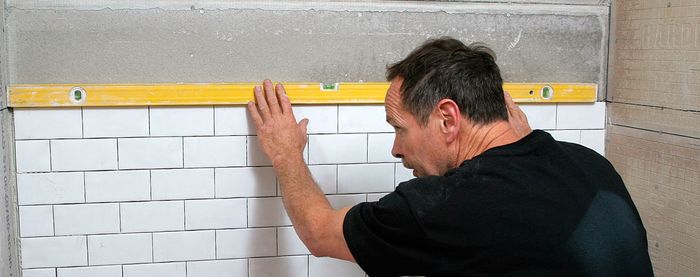Finishing Touches for a Porcelain-Slab Shower
Learn how to install large-format tile over a linear drain and finish the grout in a shower.
In this episode of Job-Site Diaries, remodeler Josh Oduin is back in Southeast Portland finishing up a large format tile installation. Last time we were there, Josh tiled over the dry-pack mortar shower pan. In this chapter Josh talks about the cool Tadelakt (Moroccan waterproof plaster with wax finish) that went on the walls, and then grouts the shower pan tile, and puts in color-matched silicone caulk around the perimeter.






View Comments
Wouldn't that be incredibly slippery when wet? I'd be afraid to shower in that because of risk of falling.
I Agree with the first comment !!
I try to talk clients into small tiles or mosaic tiles in the shower and using an area of honed tile outside the shower so that they don't hurt themselves falling on a very slippery, large, beautiful and deadly piece of large polished marble, etc.
The dynamic coefficient of friction (DCOF) for flooring materials is an important factor in ensuring slip resistance, especially in a residential shower setting where safety is crucial. While the exact values can vary depending on the specific finish, glaze, and manufacturer, I can provide some general guidance based on typical material properties.
Porcelain Slabs: Porcelain, especially when polished, can have a lower coefficient of friction. However, many porcelain tiles are rated for wet areas, and their dynamic coefficient of friction (DCOF) typically ranges from 0.42 to 0.60 or higher for matte or textured finishes. Tiles with a DCOF of 0.42 or above are generally considered safe for use in wet areas according to ANSI standards (ANSI A137.1-2012).
Matte Penny Ceramic Mosaic Tiles (3/4" Diameter): Matte finishes tend to offer better slip resistance compared to polished finishes. For small-format tiles like penny mosaics, the numerous grout joints also contribute to increased traction. DCOF for matte ceramic mosaics typically falls within a range of 0.50 to 0.65. The small size and grout lines between the tiles increase friction, making them suitable for shower floors, even if the tile surface itself has a lower DCOF.
Conclusion:
Porcelain Slabs: DCOF of 0.42 to 0.60+ depending on the finish and texture.
Matte Penny Mosaic Tiles: DCOF of 0.50 to 0.65.
For a residential shower floor, the combination of these materials should meet safety requirements, but it’s always advisable to refer to the manufacturer’s specific DCOF ratings and test the materials together in a wet environment to ensure adequate slip resistance. Ideally, you should aim for materials with a DCOF of 0.42 or higher when wet for safety in a shower area.